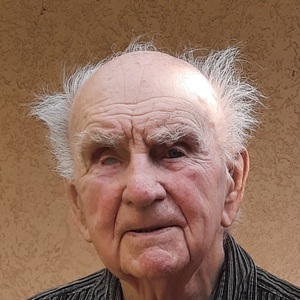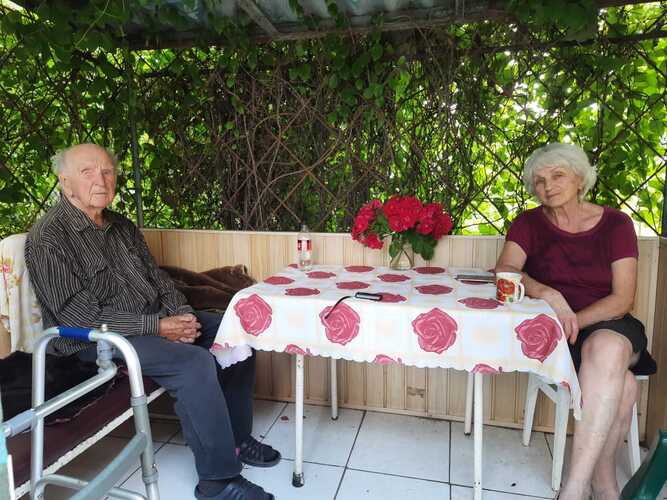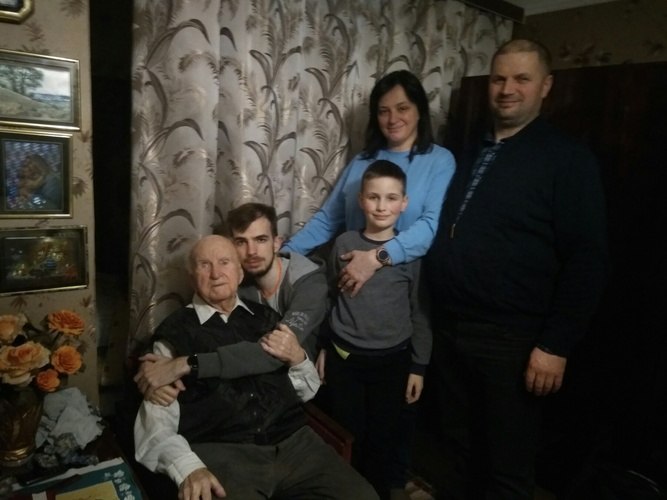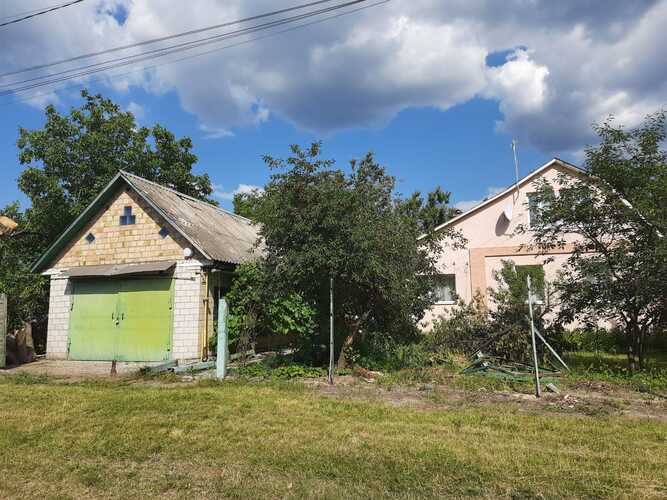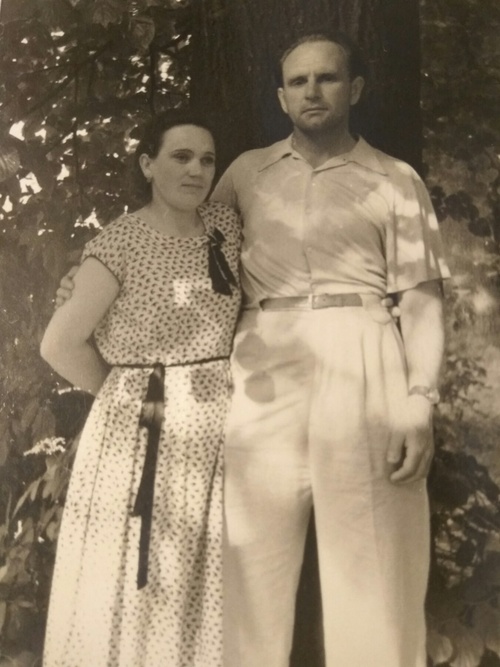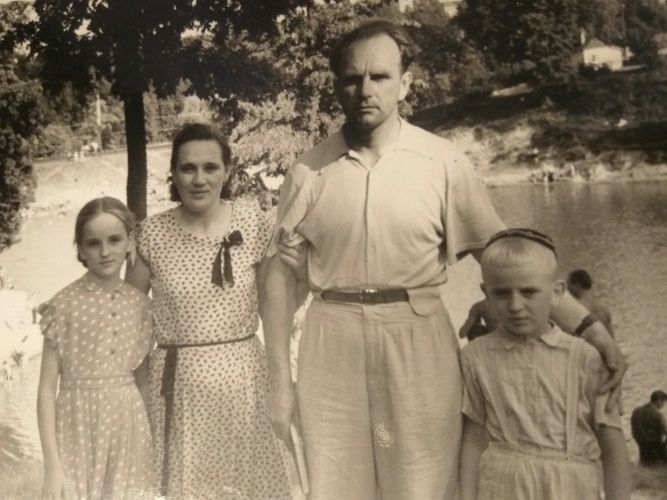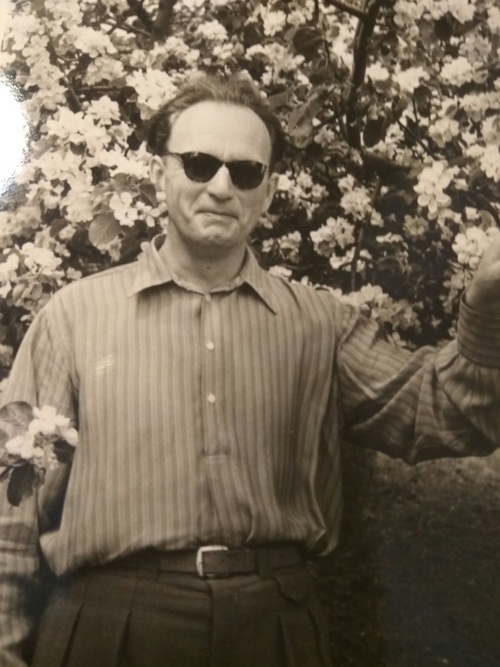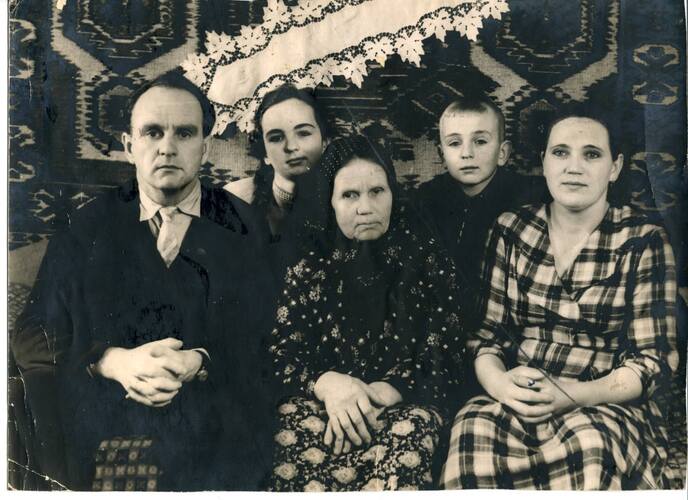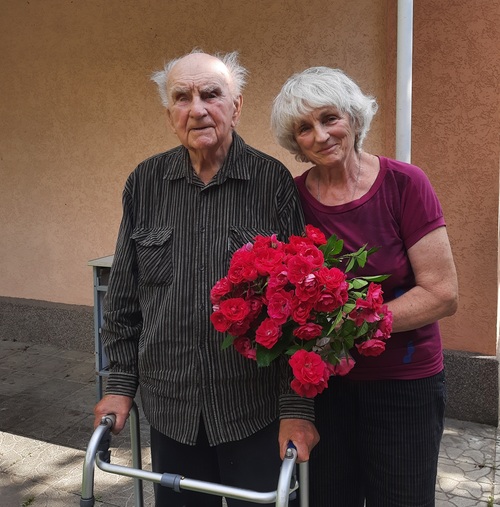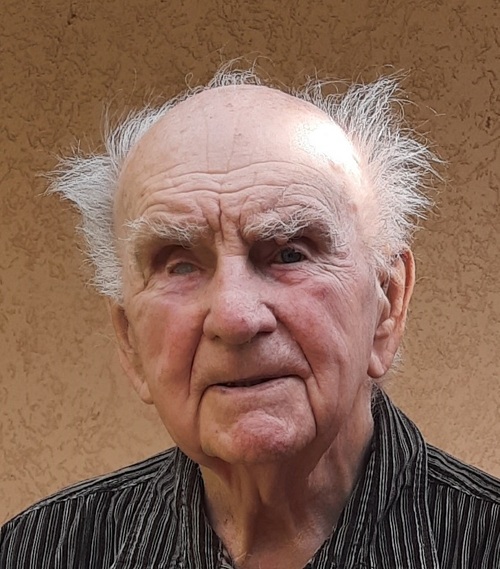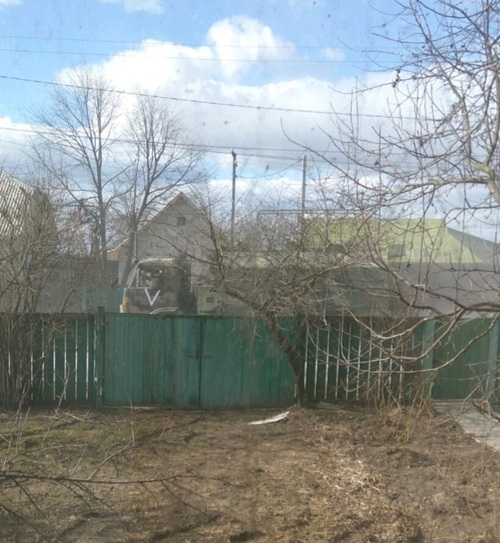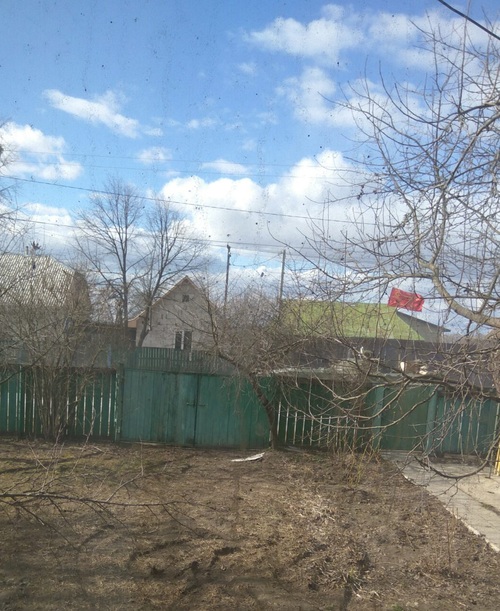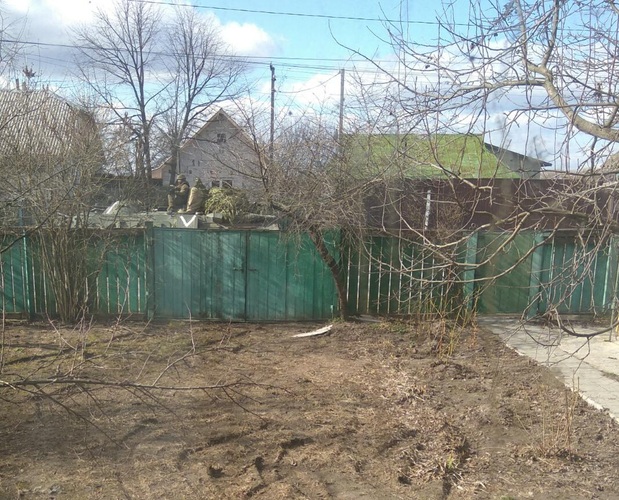Oleksii Ivanovych Yefimenko (ukr. Juchimenko) was born on February 22, 1924, in the Lypivka Makarivskyi District in Kyiv Oblast in a family of six children. When the Soviet state began collectivizing agriculture, Oleksii’s parents refused to join a collective farm (kolkhoz). In 1937, his father was arrested. He was sentenced to 10 years hard labour in a gulag, where he died while working in logging. A few years later, in 1940, his mother was also arrested, she was sentenced to 1.5 years in prison, and her children were left to fend for themselves. As a son of “enemy of the people”, Oleksii came under suspicion of theft and was sentenced to 18 months in prison. He served most of his time in Kyiv’s Lukyanivska Prison.
Oleksii was only released after the German attack on the Soviet Union. By that time German forces already occupied their village. Although Oleksii was not satisfied with the Soviet government, he didn’t welcome the German invaders: “I had such a hatred for the Germans that I began to look for ways to harm them.” In defiance, Oleksii and his friend Pavlo secretly listened to Soviet broadcasts. They then relayed the information that they had heard to the other villagers at the market. Oleksii was caught by the local police and taken into custody. He was interrogated and refused to give up his friend. Although the police never found the radio, he was sentenced to forced labour in Germany in 1942.
Oleksii was sent to a coal-processing chemical plant, where the workers were forced to produce gasoline and alcohol. The conditions of their internment were terrible: the workers were not fed adequately; they slept in barracks on the floor, and were not given any days off. One week, they decided to launch a protest action and refused to work on Sunday. To punish the protesters, the police administered beatings and fatally shot one of the workers. Oleksii and another man were accused of initiating the strike. They were arrested and imprisoned in the basement of the factory where they worked. In the night, the two men managed to break out and flee east, attempting to reach home. However, they were recaptured and taken to a prison in Leipzig. From there, they were transferred to Buchenwald concentration camp.
Upon arrival in Buchwald, Oleksii was assigned to a work detail called the “X” team, whose duty it was to build a military factory. The prisoners worked in 12-hour shifts without proper rations and were subject to abuse from the SS guards. Oleksii remembers: “They beat us a lot. If you did something wrong, you will be beaten. If you don’t take off your Mütze (hat), you will be beaten.” He then was assigned to a new work detail in a quarry. To get him out of the camp, some friendly German prisoners signed him up for transport to another camp in Cologne.
In Cologne, Oleksii was put to work in a factory manufacturing wooden barracks. Then, in February 1943, he and several other prisoners were taken to Alderney Island to manufacture pillboxes, as well as build barracks and other structures. The work conditions were brutal, and the weather was terrible. This caused a high death rate among the prisoners. Oleksii remembers that, on average, between eight and ten men out of 200 died every day. The dead were loaded onto carts and then thrown into the sea. He was also sometimes tasked with this job and feared being among the dead: “For me, the worst thing was to die on this island, to have your body thrown into the sea.”
One day at work, a trolley derailed and the Kapo forced Oleksii and another prisoner to put it back on the track. During this task, the Kapo beat the two men so hard that he broke the handle of a shovel across Oleksii’s back. He realized that the Kapo would not stop until he killed him: “This whole situation was the last straw for me, and I decided to commit suicide. I thought: why should I suffer in this world?” Oleksii decided to end his life by jumping down an abandoned mine on the island. However, his suicide attempt was unsuccessful – his clothes had caught on a ledge on the way down and saved his life. As he was still in very poor physical condition, he could no longer work on the island. He was sent with a prisoner transport to Neuengamme concentration camp. He remembers his arrival there: “People looked at us, those who returned from Alderney Island as if we had returned from hell.”
Oleksii was quickly transferred on from Neuengamme to Barth concentration camp, to work in an aircraft factory. He knew that he still was not in the proper physical condition to do hard labour and lied that he was a locksmith. He had only vague knowledge of this profession; however, his lie resulted in him being assigned to a lighter work detail assembling spare parts. As the Red Army approached Barth, the camp SS drove the prisoners on death march towards Ribnitz. On the second day of the march, Oleksii managed to flee and conceal himself in the bushes.
After the Red Army liberated him, Oleksii was hospitalized and received medical attention. When he had recovered, he joined the Red Army and served as a sapper until his demobilization in 1947. Afterwards he returned to his home village of Lypivka, where, at the time, famine reigned. Several years later Oleksii married and had two children, Lyudmila and Petro. After his studies, he began working as an energy engineer and was involved in the construction of the Chornobyl nuclear power plant.
On February 22, 2022, the whole family gathered to celebrate Oleksii’s 98th birthday in Kyiv. On February 27, Lypivka was occupied by Russian troops. Oleksii’s house was hit by machine gun fire and a tank drove into their yard, breaking the gate. It was after this that Oleksii and his daughter Lyudmila decided to flee the village and make their way to territory controlled by Ukrainian troops. Only in May 2022, Oleksii returned to Lypivka. In the summer of 2022, the bullet-hit windows in his house were replaced, but his gates still needed to be put up.
On November 1, 2022, Oleksii passed away among his family.
Written by HyunYoung (Seoul), Matthias (Göttingen)
